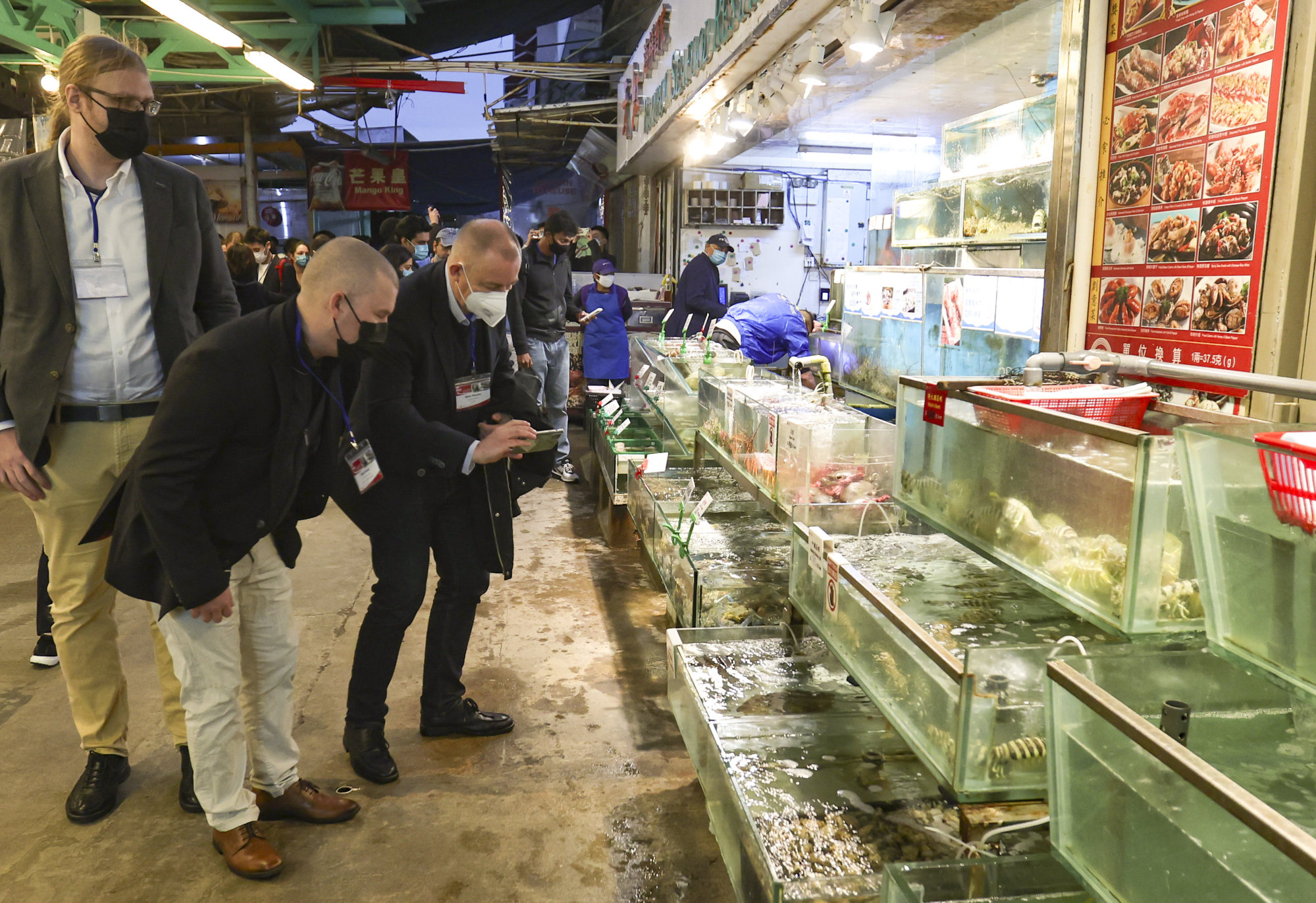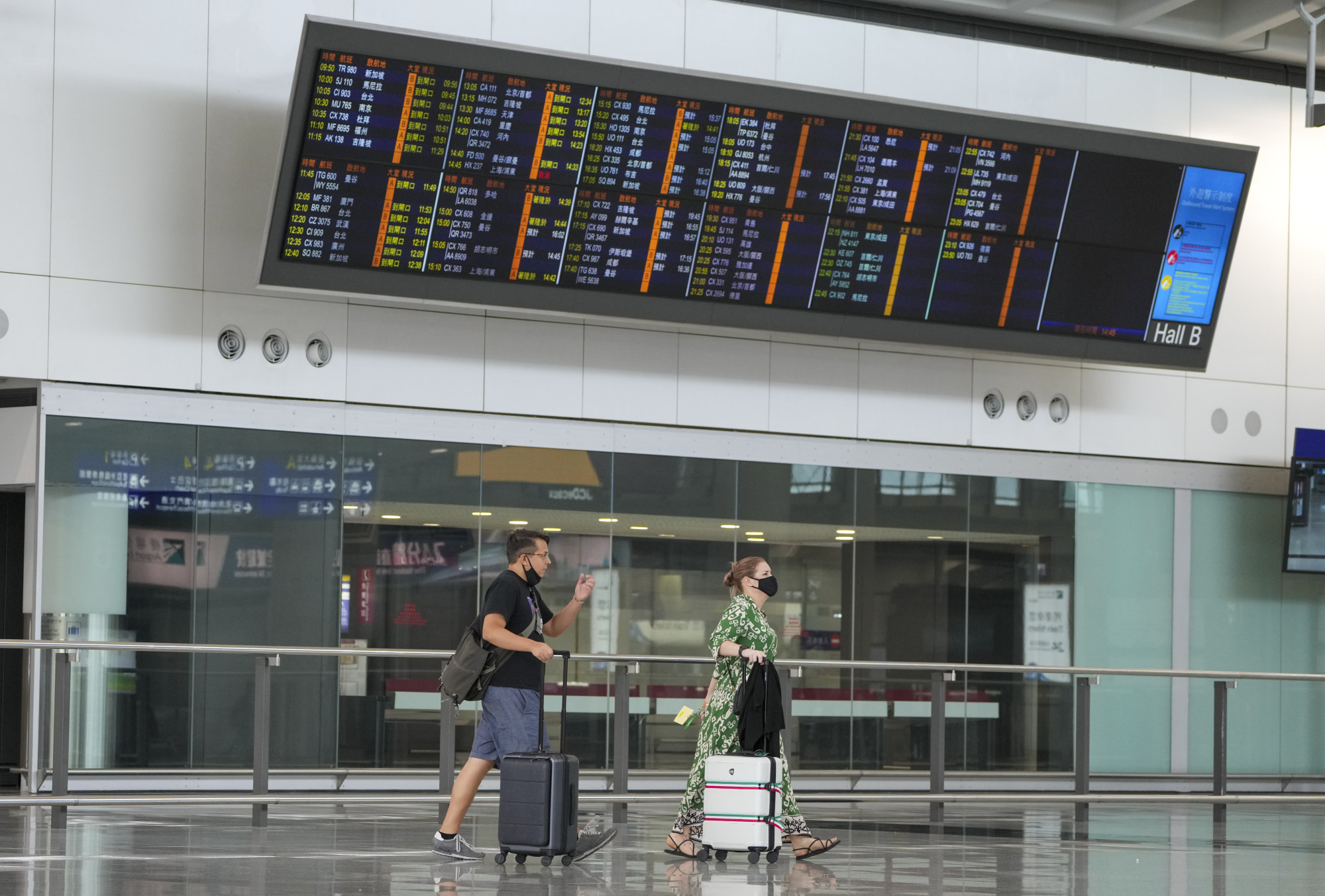
Where to eat in Hong Kong? A trickle of tour groups expected, but Covid-19 pandemic rules leave restaurants cool to serving them
- Catering industry put off by need to keep visitors in separate sections, send staff for PCR tests
- Lamma Island restaurant says yes to tour groups, but sector unsure about all the rules that must be met
A seafood restaurant on Hong Kong’s Lamma Island has become one of the first eateries to express interest in hosting inbound tour groups under updated Covid-19 measures.
Eight other Chinese restaurants were also interested, a local catering group revealed, although uncertainties over the latest measures have affected industry confidence.
Carol Pak, a spokeswoman for the Lamma Rainbow Seafood Restaurant, said she had agreed to host incoming tour groups after a travel agency approached her.
“We are at an outlying island with an outdoor area, which I think is a better environment,” she said. “It won’t be too hard for us to make arrangements.”

Her restaurant was big enough to set aside a third of the space for the tour groups, and this was also a business opportunity, she added.
Under Hong Kong’s “0+3” regime, inbound arrivals have to undergo three days of medical surveillance, during which they are barred from entering some premises, including bars and restaurants.
The government relaxed the rules for group tours last month, allowing such visitors to dine at designated venues and enter premises offering mask-on activities.
Group tour visitors to Hong Kong can soon enter restaurants, public places
Restaurants interested in hosting tour groups must submit their floor plans to show they can separate the visitors from other patrons, and also ensure that staff undergo polymerase chain reaction (PCR) tests every three days.
Fanny Yeung, executive director of the Travel Industry Council, said about 30 travel agencies had applied to bring in group tours as of Monday.
Eight had registered for tours, mainly from Thailand, the Philippines and Taiwan.
She said an inbound tour from Taiwan in early December would be the first group allowed to dine-in at designated restaurants, but declined to say more.
Lamma Island restaurant spokeswoman Pak said there were logistical problems in meeting the rules, especially the frequent PCR tests for staff.
Her employees would have to travel by boat to a testing centre at Aberdeen during working hours as there was no testing centre on Lamma Island, she said, adding that this meant additional costs.
Pak also said she was unsure if she would have to set aside separate toilets for the tour groups, although she thought this was impractical.
She added that before the pandemic, 80 per cent of her customers were tourists from mainland China, Europe and the United States.

She was contacted by British expatriate Amy Overy, who has been running private tour organiser Hong Kong Greeters since 2012.
Overy said she was still seeking approval from the Travel Industry Council for her dine-in plans on Lamma Island, but had no luck persuading other restaurants to accommodate her visitors.
“I think if you have a good relationship with the restaurants, they are probably more willing [to help]. I just don’t have the connections,” she said.
Catering industry leaders complained earlier that the process of obtaining approval for venues to host travel groups led by licensed tour guides was too cumbersome and not financially attractive.
Yeung Wai-sing, president of the Association for Hong Kong Catering Services Management, said eight Chinese restaurants had expressed a preliminary interest in accepting tour groups.
Thai tour group in Hong Kong gets only 1 day to dine out amid Covid rule change
But they were a minority in the industry, he said, adding that he believed they were keen only because “business is hard to come by”.
Yeung said the policies were simply not clear enough. For example, he explained, tour groups and regular customers would inevitably use the same entrance to buildings.
“One entrance could be used to enter multiple restaurants, some people may see amber code people coming in and out, then worry that their business will be affected,” he said.
“The restaurants need to segregate the tour groups, but does it also mean our staff must wash the bowls and utensils separately? How is that possible? If there’s only one worker washing everything, it will be hard to enforce.”
Yeung said the visitors would also have little choice except to follow their tour operator’s directions, which could lead to an unhappy experience.

